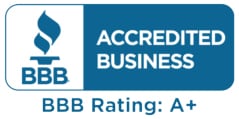5 Tips to Guide Your Next Furnace Purchase
As the chilly winter creeps in, most of us are confined in our homes as we enjoy the holiday festivities with our loved ones. It would, therefore, be best to say that the furnace is unspeakably an essential appliance in most American homes. You’ll need your heating system to keep your home warm and cozy, and it all comes down to the question of whether your furnace can deliver the much-needed comfort.
Your furnace may appear to be fully functional, but there comes a time when making a purchase may be your top priority. Whether it’s due to increased energy costs, poor performance, or frequent breakdowns, you will need to make a solid decision when purchasing a new furnace. Hence, you may require all the help to buy a furnace that meets all requirements to keep your home warm.
That said, here are some tips that may be helpful as you buy and install a new furnace.
1. Furnace Type
You may be spoilt for choice given the various types of furnaces readily available in the market. Gas, electric, oil, and propane furnaces are commonly used across multiple homes. Each type comes with its perks, and it’s up to you to go for an option that meets your finance and maintenance requisites.
Electric furnaces are cost-effective in terms of purchase, installation, and maintenance. However, you should prepare for high operational costs since they run on electricity. Determine if you can accommodate extra energy bills to keep your home warm before purchasing an electric unit.
Gas furnaces keep your home warm by igniting natural gas to heat cold air flowing into your home. They can be pretty costly compared to electrical units but provide an advantage in cutting down operational costs. Natural gas burns quickly, which means they are more powerful than electric furnaces when heating incoming cold air quickly.
Oil furnaces are similar to gas units and will quickly warm your home since oil burns at higher temperatures. However, it is imperative to note that you’ll need an additional tank for the oil.
Propane furnaces are almost similar to natural gas units but lack a flue. Thus, you can directly connect a vent, eliminating flue maintenance and cleaning costs. Decide on the option that works for your budget and maintenance requirements before purchasing and installing.
2. Energy Efficiency
Most furnaces come with an energy-efficiency label that includes the total operational costs. It is vital to consider the fuel utilization efficiency rating, especially for combustion furnaces. A high furnace efficiency means the furnace requires less fuel to keep your home warm.
You can opt for a unit with a heat exchanger that ensures better efficiency and sustainable fuel consumption. Check and compare the efficiency rating across different furnaces and choose an option that promises enhanced performance and efficacy.
3. Furnace Vendor
It’s not an easy feat to replace or purchase a new furnace as it can be a worthwhile or regrettable investment. Therefore, you should find a qualified and professional contractor who can recommend a unit based on your heating needs. Before recommending a furnace, the contractor should evaluate variables such as heat loss, home size, layout, and overall heating systems.
The vendor should also provide all details about the furnace, such as energy efficiency and warranty terms. They should also inspect your ductwork to ascertain if a particular unit can ensure maximum airflow and distribution in your home.
The vendor should first check your current heating system to determine the best installation approach for your new furnace. They should also provide an accurate estimate based on your current heating condition assessment. Check the vendor’s credibility by verifying their registration with the Business Bureau, customer reviews, and any pending issues with their clientele.
4. Referrals
Recommendations from friends and family can complement your search for a better furnace. Check what they have in their homes, and their advice can be helpful if they recently purchased a new furnace. Ask for references for credible furnace vendors and check out customer testimonials on their experiences with different furnace types.
5. Budget
Take time to evaluate all financial constraints associated with your furnace purchase. When budgeting, include the furnace cost, installation, and maintenance. It is essential to go for a furnace that improves your indoor conditions while keeping your spending at a minimum.
Ask for a quote from your vendor and determine the overall cost of keeping your home warm and comfortable. Determine if purchasing is the best option compared to repairing and maintaining your current furnace.
You can always reach out to A To Z Dependable Services in Niles, OH, to determine the best furnace for your home. You can also trust us with your home’s heating, cooling, and plumbing needs. Contact us for more information and decide whether you need a new furnace or whether you can keep your current unit functioning.




